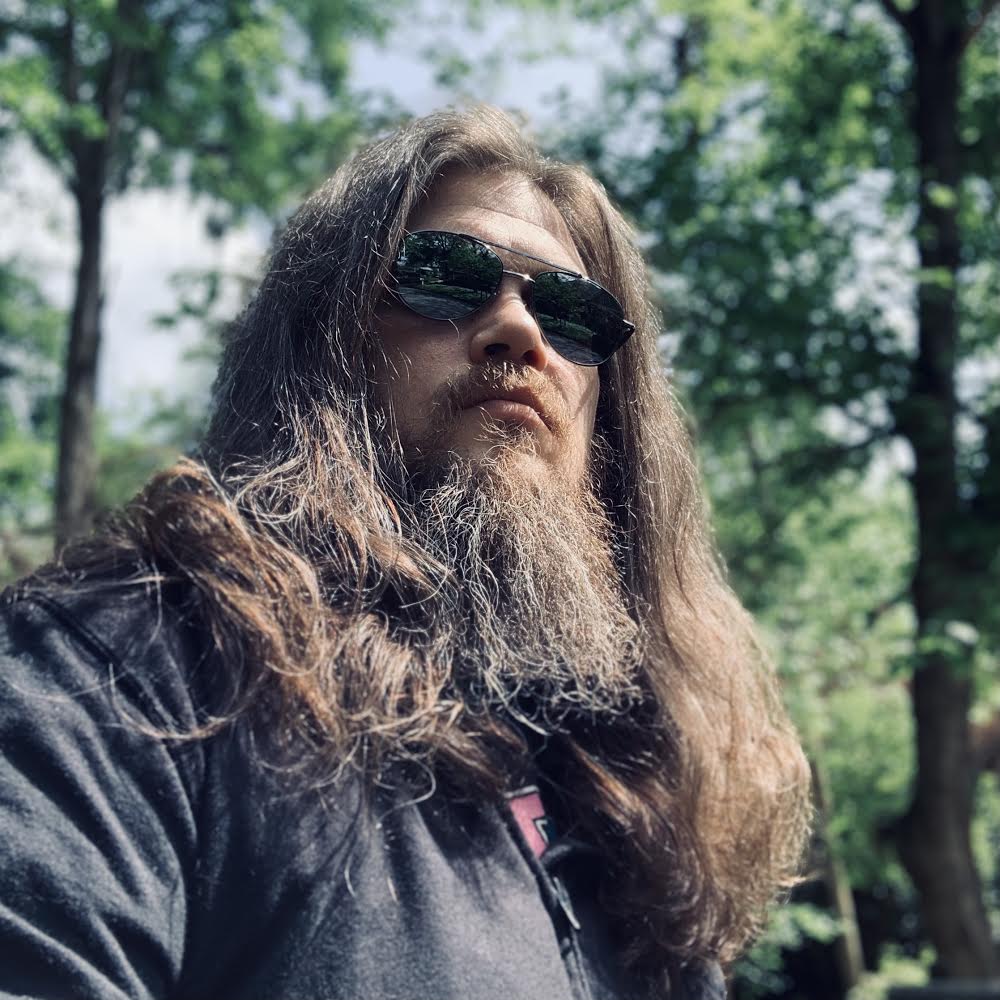Robert Downey Jr. could make a perfect Doctor Doom - if he nails these 5 things from comics
Marvel still has a chance to deliver a true comic accurate Doctor Doom

Doctor Doom is one of Marvel's most popular villains, and that popularity will be put to the test as Marvel Studios is now anchoring the next two Avengers movies on the masked menace. And to bring Doom to life, Marvel has made the polarizing move of casting the actor perhaps most associated with the MCU, former Tony Stark/Iron Man Robert Downey, Jr.
As difficult as it may be given the vast, inscrutable layers of in-universe and behind-the-scenes finagling that could be at play in putting RDJ in the Doom mask, it's time to set aside the ups-and-downs of the actor, and start looking ahead to the adaptation itself, which still has the potential to deliver a version of Doctor Doom that does the legendary comic character justice - without simply hollowing out his armor and putting a Stark inside.
If Marvel Studios is determined to make its Doctor Doom more than a publicity stunt, but a character who endures the same way RDJ's Iron Man has, these are five things straight from comics that the actor and the adaptation need to nail to deliver a pitch-perfect big screen Doom.
Sorcery AND Super Science
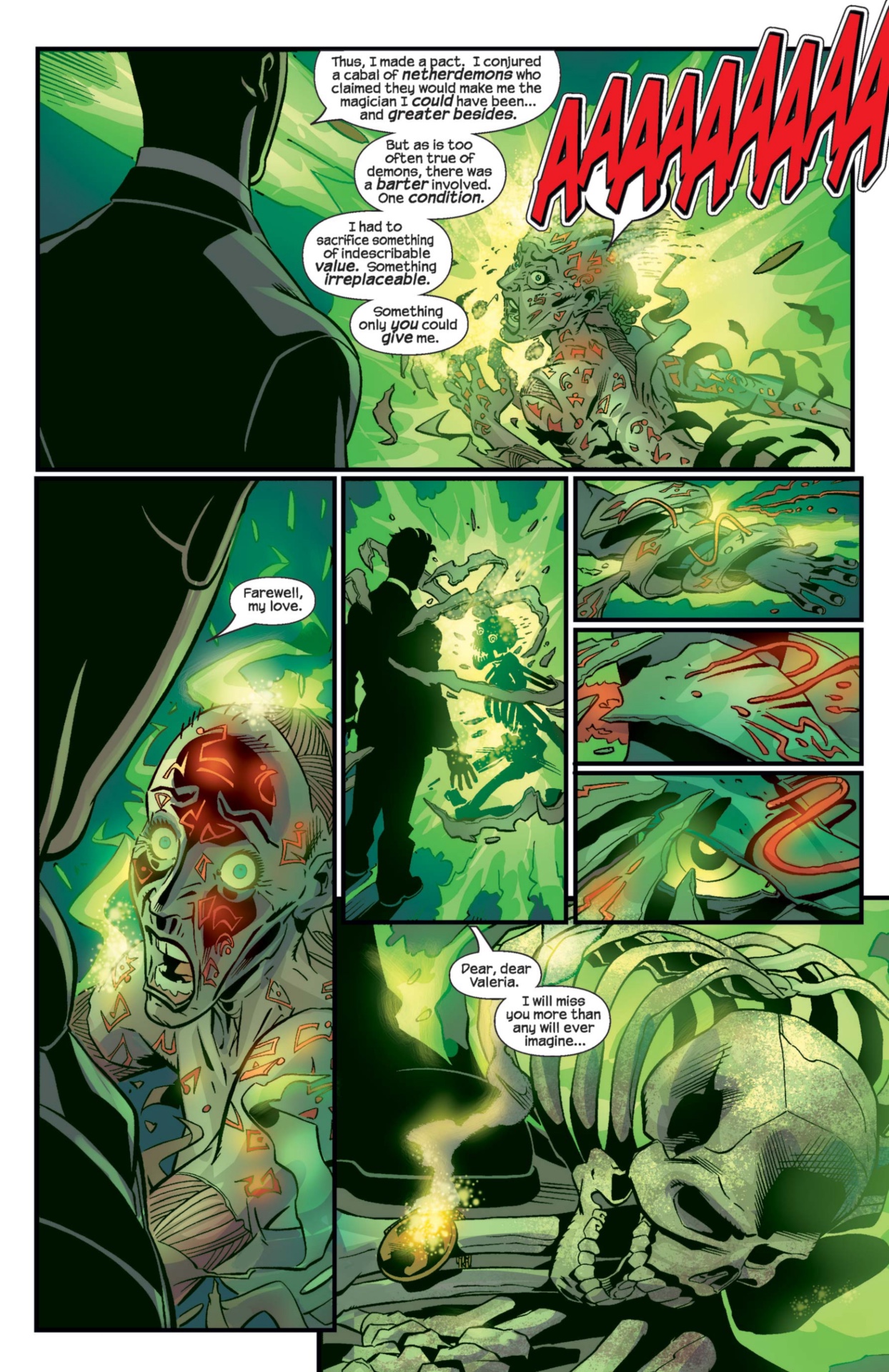
It's been said in comics that Doctor Doom is actually smarter than his hated rival Reed Richards, but that he's held back by his own arrogance and villainy. And Doom certainly has his share of technological marvels under his belt, from once building a machine that stole the Silver Surfer's powers, to inventing the time travel technology that would eventually go on to allow Kang the Conqueror to establish his era-spanning empire.
But there's one clear piece of evidence that Doom is smarter than Reed Richards: his mastery of magic. While Reed is quite often stymied by anything to do with the mythical and mystical, Doom embraces it, even blending it with his mastery of science. Doom is competent enough at magic that he is actually now the Sorcerer Supreme of Earth, having talked Doctor Strange into giving him the mantle (more on that later).
Doom has embraced his magical side before. In the Fantastic Four story 'Under the Skin/Unthinkable' (one of the best Doctor Doom comics of all time), Doom's connection to magic is explored through a flashback to his childhood sweetheart, who eventually becomes a sacrifice to Doom's magic in one of the most nightmarish schemes he's ever pulled off - turning her skin into cursed, magical armor.
Diabolical Schemes
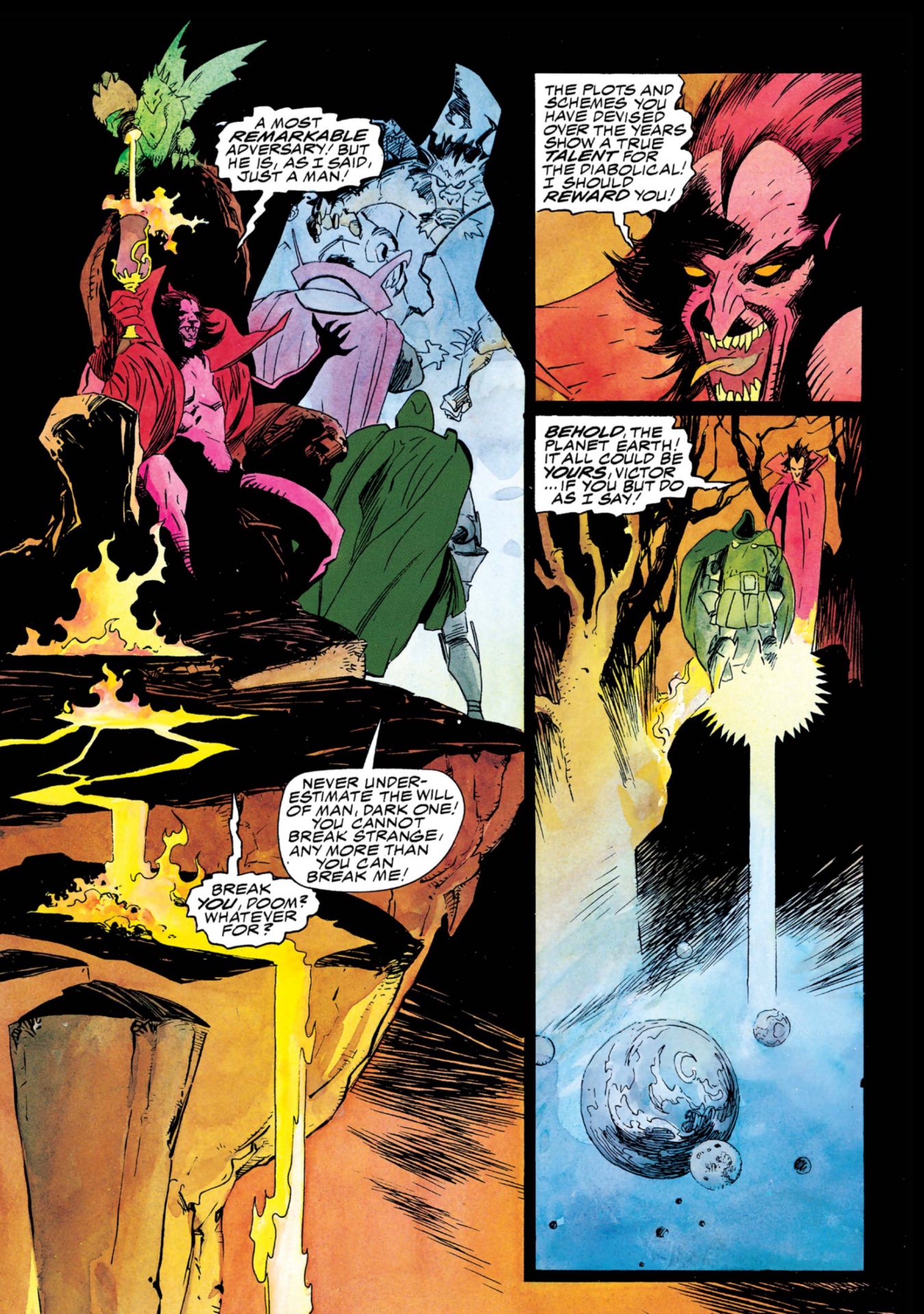
Speaking of schemes, intricate plans that occur largely beyond the knowledge of the heroes until it's far too late to stop him are Doctor Doom's weapon of choice as a villain, with his home kingdom of Latveria acting as a staging ground for all manner of diabolical plans over the decades since Doom was introduced in Fantastic Four #5 in 1962.
Comic deals, prizes and latest news
Get the best comic news, insights, opinions, analysis and more!
Doom is such an evil genius that he even outwitted the demonic Mephisto in a dark pact to bring his own mother's soul out of Hell by tricking Doctor Strange into helping him and then trading his soul to the demon, as told in the graphic novel Doctor Strange/Doctor Doom: Triumph and Torment. But undoubtedly Doom's most intricate and successful scheme was his plan to save the Multiverse from the Beyonders, a strange race of cosmic entities who wish to destroy all existence, in the lead up to 2015's Secret Wars, which will lend its name and inspiration to the upcoming Avengers: Secret Wars film.
Doom manages to save the Multiverse - but just bits and pieces of different worlds, which he stitches together as his own personal reality, known as Battleworld, in which, for a brief moment, Doom finally reigns supreme over all existence, before being thwarted by his most hated nemesis, Reed Richards.
The Rivalry with Reed Richards
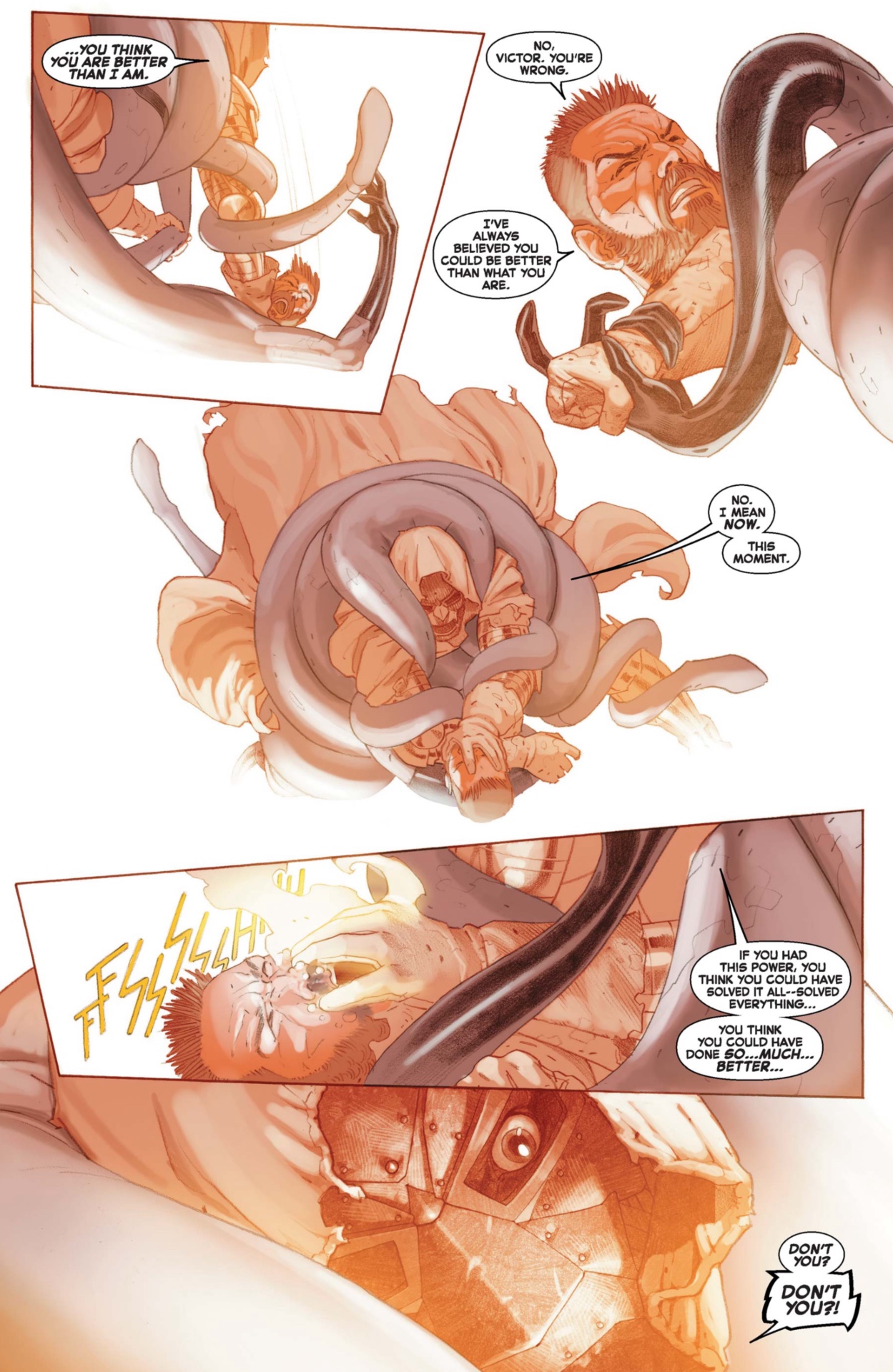
Victor Von Doom Doom hates Reed Richards. Hates him more than he loves his own success. Hates him enough to give up a sure victory if it means he gets even a fraction of a chance to punish Reed Richards instead. Doom's hatred of Reed Richards is pathological, eternal, and all-encompassing. In other words, it's an absolutely essential part of who Doom is and why he's such a thorn in the side of the entire Marvel Universe.
Doom's hatred of Richards began all the way back in their college days, when they were both genius students studying the most bizarre and theoretical sciences. To wit, the young Doom builds a machine to contact the spirit of his dead mother - as one does. Noticing an error in Doom's math (whatever kind of arithmetic allows you to contact the dead I guess), Richards warns him of his mistake.
Doom, believing Richards' intellect to be so inferior that he couldn't possibly correct him on anything, goes ahead with his experiment and activates the machine. But Richards is right, and Doom's machine explodes, leaving him with a massive wound to his ego, and a tiny scratch to his face. Even this tiny scar would prove too much for Doom's ego, leading him to return to his native Latveria, and eventually take up the menacing iron mask that would come to define him as Doctor Doom. And through it all, he blames Reed Richards as a deterrent to his own folly.
The Mask
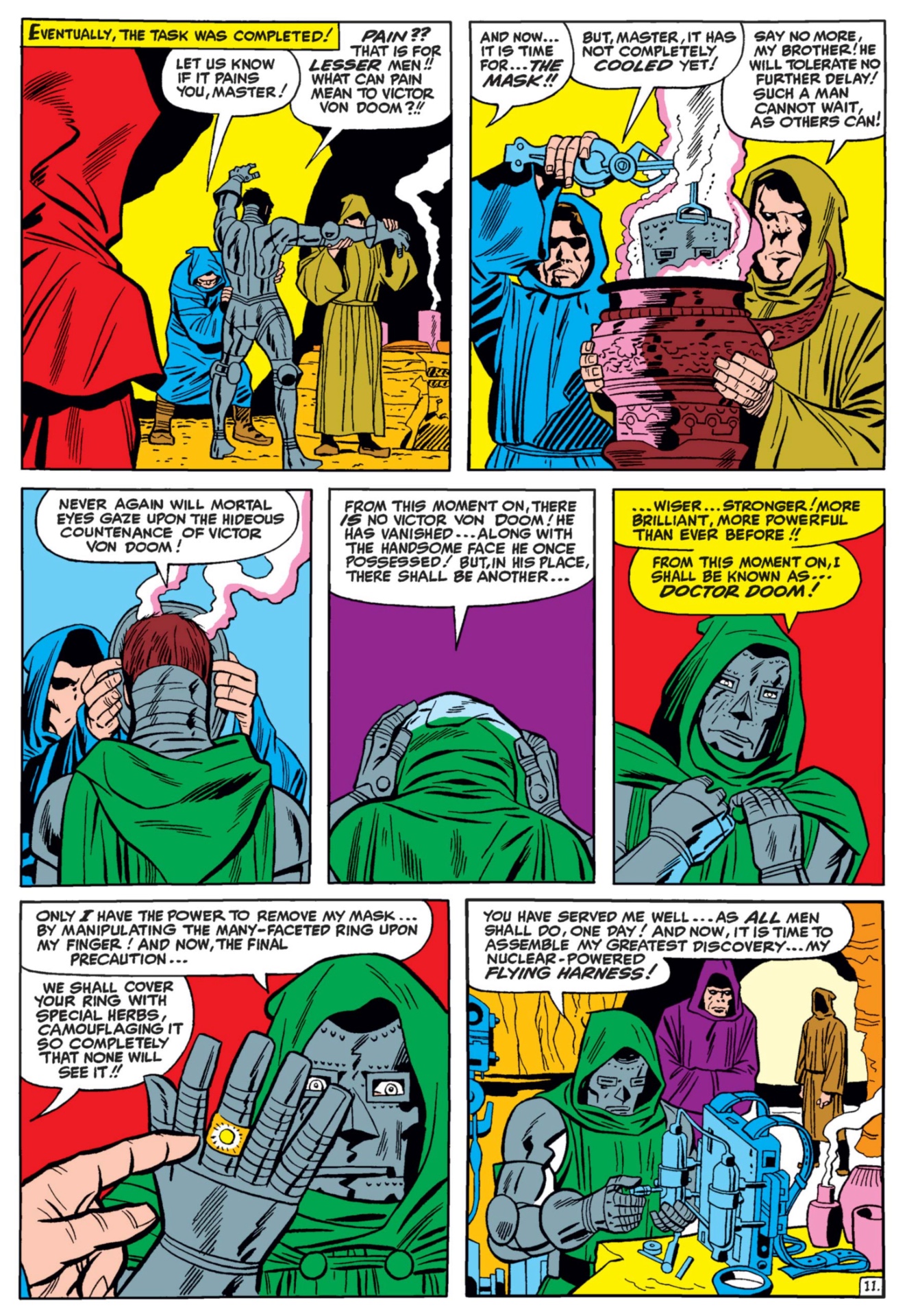
This one is simple. Doctor Doom's iconic mask, designed by one of the legendary architects of the Marvel Universe, Jack Kirby, is one of the most striking, menacing, and instantly recognizable faces in all of comics. And as yet, no one's gotten it right in any of the big screen Fantastic Four movies. Thankfully, if the masks worn at Marvel Studios' big reveal are any indicator, they may be on the right track.
The mask is, admittedly, deceptively simple. The way the plates align and come together, especially in the jaw, is much easier to render in comics than as an actual three-dimensional object. But it's the most simple, elemental part of Doom's appearance next to his green cloak. If the mask is right and he's got his trademark hood and cape, the rest of his appearance has lots of leeway in how it can be designed.
Doom's mask isn't just a disguise for him, either. In Doom's eyes, it's his true face - the only one he wants the world to see thanks to his brutally burned flesh. What's that you say? Doom only had a tiny scar after his machine exploded? That's true. But Doom further disfigures himself by putting on his red hot mask directly after it was forged, choosing to forego his human face for a face of wretched iron - purging himself of physical vanity and vowing to become Reed Richards' doom.
Gravitas
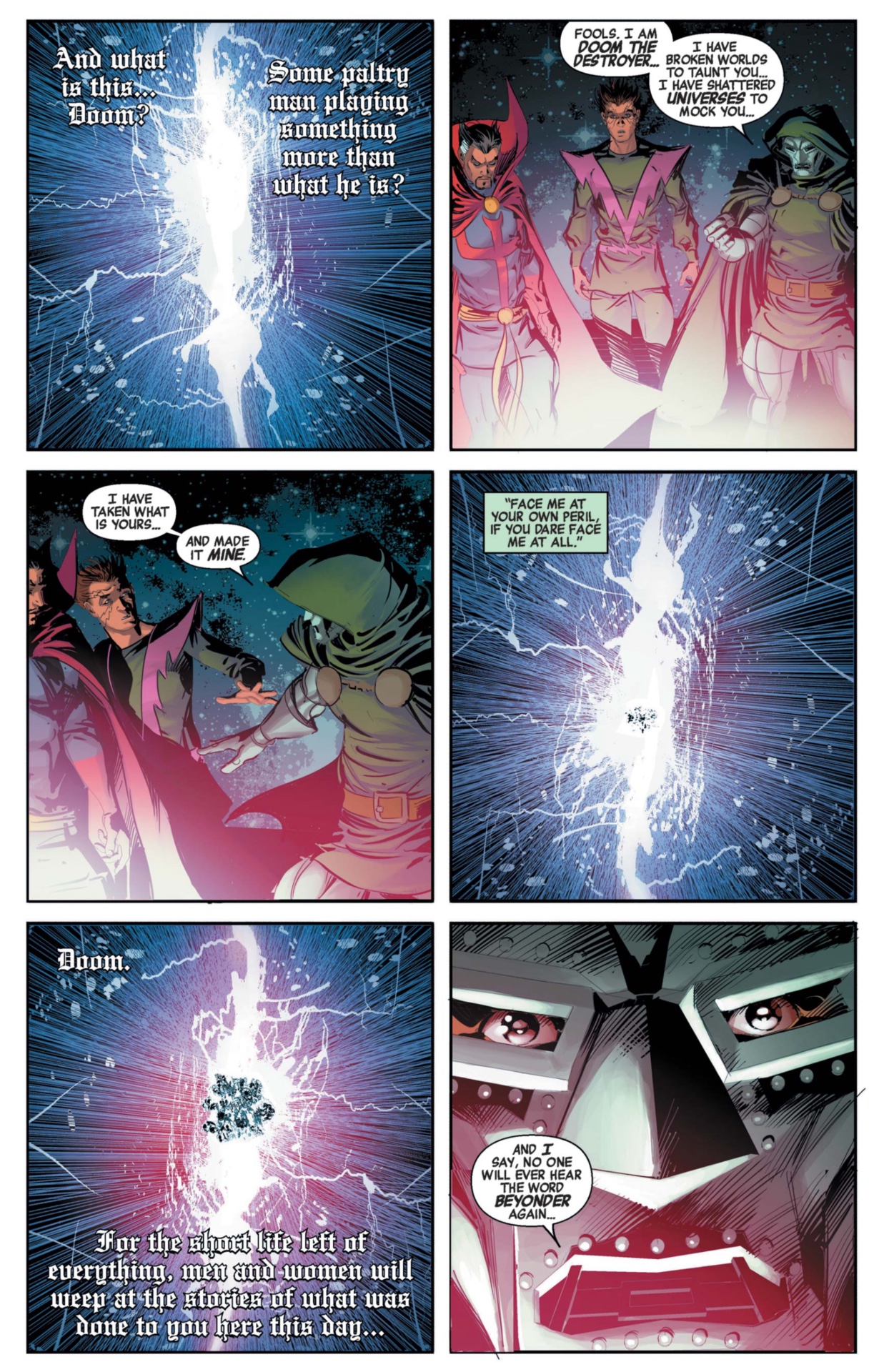
Here it is. The most important quality Doctor Doom must have to come across as a true, fully-realized adaptation of Marvel's most malevolent villain: gravitas. The air of menace and seriousness that Doctor Doom commands as both a villain and as the literally iron-fisted monarch of Latveria is second to none in the Marvel Universe. Doom possesses such arrogance and profound entitlement that he can look cosmic beings in the face and make them blink, like when he rescued the entire Multiverse from the enigmatic Beyonders who wished to wipe it out in the lead-up to 2015's Secret Wars event
Doom has wit, he has a certain kind of charm, but they're very much not the kind of snarky, often detached wit and charm of Tony Stark. Doom is perfectly capable of turning a hero's words around on him, but it's less like a sick burn and more like a lawyerly argument designed to perfectly manipulate his target. Take for example his most recent accomplishment - stealing the mantle of Sorcerer Supreme by literally talking Stephen Strange into handing it over to him.
How did he do it? All he had to do was viciously but sternly point out to Strange that the job of the Sorcerer Supreme is to protect Earth from mystical threats like the vampire insurrection that was sweeping the Marvel Universe at the time - and that only he, Doom, was truly capable of doing so. He then immediately addressed the people of Earth, informing them of his new title and bringing fear to everyone who heard his message. That's the kind of gravitas Doom requires.
I've been Newsarama's resident Marvel Comics expert and general comic book historian since 2011. I've also been the on-site reporter at most major comic conventions such as Comic-Con International: San Diego, New York Comic Con, and C2E2. Outside of comic journalism, I am the artist of many weird pictures, and the guitarist of many heavy riffs. (They/Them)
